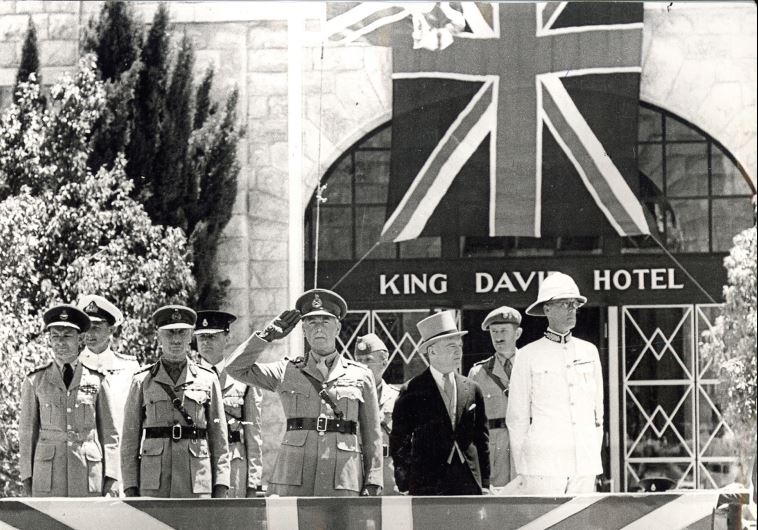The King David Hotel bombing: Letting the people judge the truth
Marking 70 years since the King David Hotel bombing that struck the heart of the British Mandatory government.
 Pre-bombing: The British High Commissioner salutes outside the King David Hotel around 1945(photo credit: FRED CSASZNIK)
Pre-bombing: The British High Commissioner salutes outside the King David Hotel around 1945(photo credit: FRED CSASZNIK)